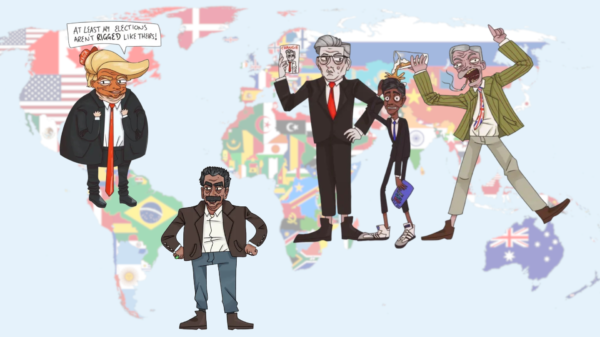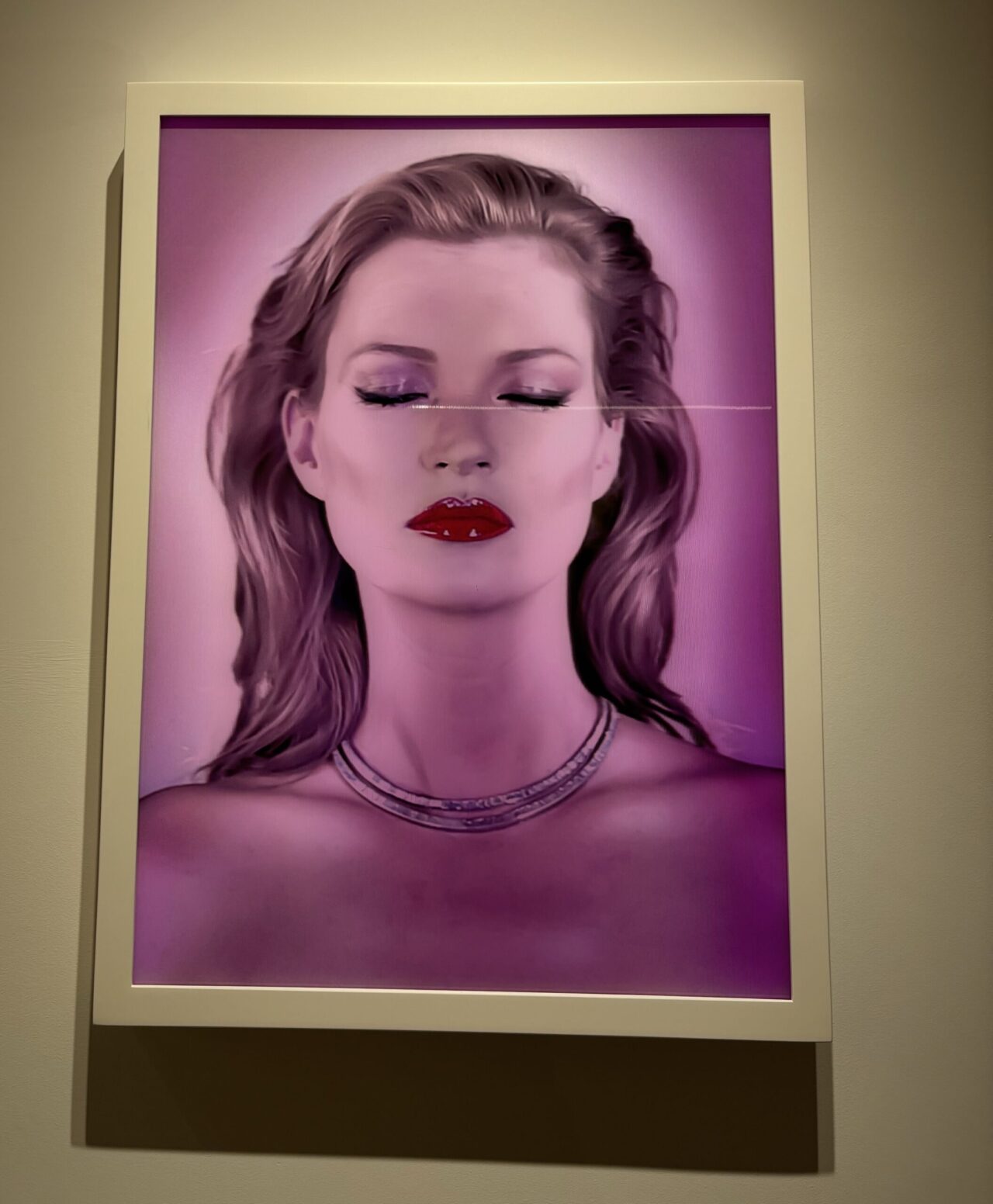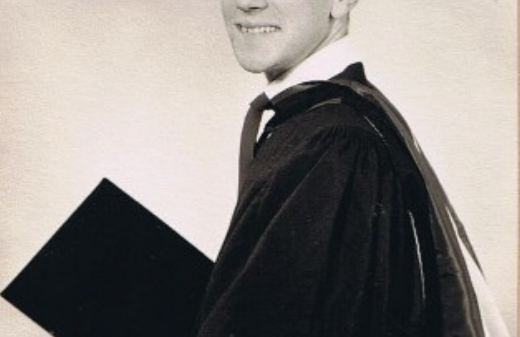Roar writer Laura Maxwell on how Channel 4 series “It’s A Sin” explores the theme of grief during the AIDS epidemic in London.
Channel 4’s “It’s a Sin” has taken television drama for a storm since its debut in January. Starring “Years & Years” frontman, Olly Alexander, in his first leading role, the five-part series follows the trials and tribulations of five young people living in London during the 80s, struggling to come to grips with a mysterious disease that is killing thousands of gay men in London and across the world. I thought the series in its entirety was a thoughtful, heart-swelling depiction of the joys and sorrows of being gay in the city amidst the advent of the AIDS epidemic. Not to mention the ever-present fear that many gay men experienced at the time alongside, in Alexander’s character, Ritchie Tozer’s case, flat-out denial.
As much as I enjoyed the show, I do not wish to review it as a whole. Personally, I was particularly astounded and moved by the series finale. For those who have not watched the show yet, be warned, I am about to reveal some spoilers. Episode five portrays Ritchie after his discovery that he has contracted HIV, which has evolved into AIDS. The episode begins with Ritchie and his best friend, Jill Baxter (played by the phenomenal Lydia Westley) trying to combat the disease with limited success. Despite their efforts, Ritchie grows too fragile and is transferred to hospital. Until this point, Ritchie’s parents, Valerie and Clive, are kept in the dark not only about him having AIDS, but are also blissfully unaware of his homosexuality. The truth is finally revealed when Valerie and Clive journey to London to visit their son.
It has been said that grief comes in stages, the first being denial. I can’t think of a word that better sums up Keeley Hawes portrayal of Valerie Tozer. “You really are very young,” Valerie smiles, gazing upon Ritchie and his friends before proceeding off into a ghostly tangent about how she was unsure if Ritchie was going to visit home that Christmas, prompting the untimely visit to London. “What on earth’s been going on?” Valerie asks as she unpacks Christmas presents from fellow-unknowing relatives.
The individual sequence that plays repeatedly in my mind is when Mrs. Tozer is click-clacking up and down the hospital corridor, the sound of her heels penetrating the halls. From shouting at the receptionist, demanding to see Ritchie’s doctor, to berating Jill for supposedly ‘lying’ to her all those years about her and her son’s relationship (she mistakenly assumed that Ritchie and Jill were boyfriend and girlfriend) to physically abusing her husband for daring to show human tears, beset with the knowledge that his son is going to die. Is that supposed to help? I believe this sequence showed Russel T. Davis for the mastermind director that he is. The sound of Valarie walking up-and-down the hospital, igniting a fire everywhere she went, led me as a viewer to wonder desperately: “Oh God, what is she going to do next?”
Tears is something Valerie cannot see. For to cry is to accept the reality of what is happening, and that is something she will simply not do. Not only is Valerie unwilling to acknowledge her son’s sexuality, but this unwillingness extends to the treatment and advice of medical professionals. “They all do and they say and they think the same things they all worship the same rubbish (those queers and those women and their doctors).”
The unfortunate reality of Valerie Tozer, alongside millions of parents that were witnessing their children die at the hands of this merciless disease, is that I don’t think she left and will ever leave that first stage of grief. Until the end, Valerie is determined to assert her innocence in, not only the final days of her son’s life, but as a mother.
This is where understanding grief gets complicated. It is not linear, and it is not always rationale. At the heart of it, this is a woman grappling not only with her son dying, but his homosexuality, which she doesn’t understand, if not, agree with. Valerie can’t bear the thought of losing her son but, perhaps even more prominently, she can’t bear the thought that she never truly understood or even knew him at all. We all deal with grief in different ways. In order to deal with this inner turmoil, Valerie, unable to remove the AIDS nor the homosexuality from her son, instead takes him out of London, back home to the Isle of Wight. By physically removing him from his surroundings, it is almost as if Valerie is desperately trying to recapture the son she thought she had; the AIDS-free, heterosexual son she envisioned. This becomes evident when Valerie plays Ritchie, bed-ridden, his disease slowly eating away at him, an old song that he supposedly enjoyed. “How much you use to love this (the song “A Windmill in Old Amsterdam” by Ronnie Hilton), do you remember?” What follows is the perfect accumulation of the journey of grief. Juxtaposing the happy-go-lucky show-tune about a mouse living in a windmill with Ritchie sitting up-right in bed, immobilised by the disease that is killing him, and Valerie trying hopelessly to reclaim the memories of happiness and nostalgia is what the music invokes. This scene highlights the complexities of loss.
As a viewer, my initial reaction to Valerie was anger. On first watch, we want to villainise her. Not only for her internalised homophobia but her disrespect towards Ritchie’s friends and disallowing them from seeing him in the final days of his life. After watching this episode several times to process what I’d seen, I considered that perhaps I and many others have judged her too harshly. Life is not that simple. We don’t live in a world of heroes and villains. Truth be told, we have no idea how we are going to cope with loss until we get there. Valerie is not a bad person, she is a mother who is grieving. She is also a product of her time when being gay was simply unacceptable. Therefore, she is not only mourning the physical loss of her son but the son she thought she knew.
Regrettably, even after her son passes Valerie is still unable to reconcile with her son’s homosexuality and the life he led in the city. “They say it was his heart…no pain before you start so it wasn’t my fault.” Blame. How to avoid it and where to place it. This seems to be at the front of Valerie’s mind when she informs Jill of Ritchie’s death. This could perhaps be invoking the classic method of dealing with guilt by asserting it elsewhere, but I perceived it as deeper than that. Not only absent at the moment her son finally passed away, Valerie struggles to consider the lingering thought that her shortcomings of a mother prevented Ritchie from confiding in her about his sexuality earlier. Indeed, if he had, he may not have felt the need to cope with his emotional estrangement from his parents through various sexual liaisons.
These are conflicts many parents face once their children reach adulthood, and it is certainly not exclusive to young, gay men. But alas, what’s done is done, and all there is to do now is cope. Some of us do that by pulling in our friends and family tighter, reminding ourselves of what we still have. Valerie on the other hand, like many others, chooses to isolate herself from reason and sentiment. This, to me, is one of the most heart-breaking discourses of not only “It’s a Sin” the TV series, but the entire AIDS epidemic.

















